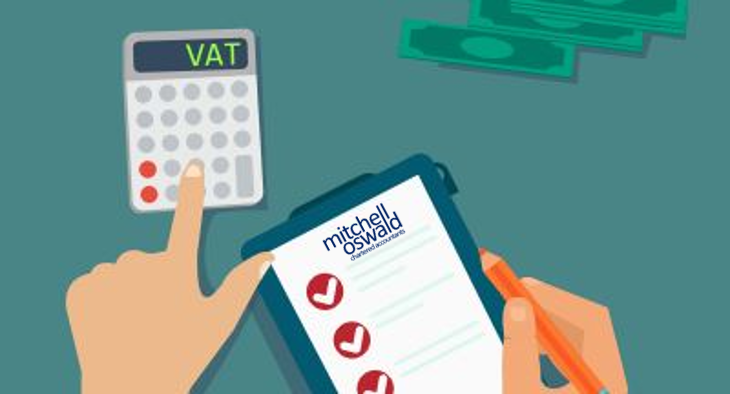Deregistering for VAT
When and how to begin the process of deregistration.
These days VAT thresholds are the subject of much speculation, with the Government concerned that many business owners deliberately choose to stay below the VAT-registration threshold.
Limiting your ambition in this way might seem counter-intuitive – surely you want your business to get as big as possible?
But it can make sense if you are seeking to make a sustainable living rather than get rich, perhaps by trading on online auction sites, or running a café with limited opening hours.
If your business’s turnover is predicted to fall below £83,000 over the next year, it can voluntarily deregister for VAT.
You will need to deregister from paying VAT if your business ceases to trade.
Voluntary deregistration
Your business can deregister if it expects taxable sales in the next 12 months to be less than the deregistration threshold, which stands at £83,000 in 2018/19.
A voluntary deregistration from VAT can take effect from a current or future date.
If no date is specified, it takes effect from the date HMRC receives the application to deregister, or a later date as agreed with the Revenue.
You cannot backdate deregistration, even if you made a mistake in registering for VAT in the first place, or you could have applied to deregister earlier but didn’t for whatever reason.
Compulsory deregistration
If your business has ceased to trade and has no intention of making future taxable sales, it must deregister from VAT with effect from the final day of trading.
However, there is scope for us to extend this date and therefore capture some final purchase invoices for the purposes of input VAT.
There may well be professional fees to pay, which arrive after your business makes its last sale.
Example
Ben and Pete are VAT-registered home fitters trading as a partnership, which makes £90,000 in annual income. Both partners work full-time and they have no employees.
On 31 October 2018, Pete decided to retire to leave Ben as the only fee earner. Pete plans to remain a sleeping partner.
All things being equal, expected sales in the next 12 months will be £45,000 so the business can deregister on 31 October 2018.
This might be worthwhile if many of their customers are unable to claim input tax because they are private individuals.
The partnership will also avoid having to enter the Making Tax Digital for VAT regime, which is due to take effect from 1 April 2019.
Assets held on deregistration
If your business still holds assets and stock on the day it deregisters, there can be a VAT liability to pay as those assets are deemed to have been disposed of at their market value on that day.
There are ways to reduce or eliminate the potential VAT liability, such as:
- The VAT payable is based on the market value of the assets or stock on the date of deregistration, taking into account depreciation, damage to the goods, and obsolescence of the items.
- No VAT is liable on an asset if input VAT was not claimed when it was purchased – for example, a second-hand van bought from a business which was not VAT registered. The exception is when standard-rated goods were obtained VAT-free as a result of taking over a business as a going concern.
- No output VAT will be payable on the value of assets if those goods are zero-rated or exempt from VAT.
- No output VAT is due on intangible assets, such as patents or goodwill.
Finally, where the total of output VAT calculated in respect of all the assets and stock held at deregistration amounts to less than £1,000, no declaration is needed on the final VAT return.
Example
For the purposes of this example let’s revisit Pete and Ben, who deregistered from VAT on 31 October 2018.
On that day, the partnership held a one-year-old car bought for £15,000 plus VAT – but no input tax was claimed because the vehicle was for private use.
They also had tools purchased over a number of years, costing £6,000 plus VAT.
No output tax is due on the car because input tax was not claimed when it was purchased.
The tools have depreciated to a market value of £2,000 on 31 October 2018. If the tools were sold at that value, £400 would be charged (VAT at 20%).
Anything less than £1,000 is not considered a significant amount in this context, so no VAT has to be accounted for in respect of those tools.
Post-deregistration expenses
On your final VAT return, your business must account for VAT on unpaid sales invoices, even if it uses the cash accounting scheme. It can also claim input VAT on unpaid purchase invoices.
Once the final VAT return has been submitted, it is not too late to make a claim for business expenses.
You can claim input VAT on purchase invoices, such as accountancy fees, that are dated after deregistration, so long as they relate to the period your business registered for VAT.
Change of business structure
If your business changes structure, such as from a sole trader to a limited company, the sole trader will deregister from VAT and the new company should become VAT-registered on the same day.
The new company may retain the same VAT number as the previous owner and it will also assume responsibility for any potential VAT liabilities.
This includes carrying the can for any errors made in the previous four years, if the new company takes on the old VAT number.
To avoid such unquantifiable risks, it is better to start afresh with a new VAT number.
Bad debt relief
When your business ceases to trade, it may not have been paid for its final sales.
If some customers fail to pay, the business can claim bad debt relief up to four years after deregistration.
We can handle this for you by completing the VAT427 form online, printing it off to be signed and submitted.
If you choose to handle this yourself, ensure you have all the information to hand before starting and note that a half-completed form cannot be saved.
Flat-rate scheme
Where your business has been using the VAT flat-rate scheme (FRS), it is deemed to leave that scheme the day before the VAT registration is cancelled.
Example
Ken is winding down towards his retirement after years in the pest control business, and decides to deregister from VAT with effect from 31 December 2018.
He is deemed to leave the FRS on 30 December 2018, and should issue any outstanding invoices before close of business on this date.
All Ken’s business-related purchases made on 31 December 2018 will fall inside normal VAT accounting, but outside the FRS, so he can reclaim VAT charged on those items.
He should make sure the invoices for these are dated 31 December, not before or after, to maximise his potential VAT saving on deregistration.
Once Ken is deregistered from 1 January 2019 onwards, he won’t be able to reclaim VAT on any purchases and must not charge VAT on his sales.
He can claim bad debt relief on invoices issued for sales made before his VAT registration is cancelled, while the debt must be written off in his accounts and be at least six months old.
The amount of relief claimed is calculated at the full rate of VAT applicable to the sale, not the flat rate used to calculate VAT to be paid to HMRC under the FRS.
VAT MOSS
Your VAT MOSS registration cannot continue if your business deregisters from VAT.
The deregistration process for VAT MOSS must be done online and you must give HMRC at least 15 days’ notice before the end of the quarter in which notice to deregister from VAT MOSS is given.
Thus, to deregister from VAT MOSS with effect from 1 January 2019, notice must be given by 15 December 2018.



Angela Mitchell – Partner
Angela has 19 years of experience in tax and is both a Chartered Accountant and a Chartered Tax Advisor. She is a member of the Institute of Chartered Accountants of Scotland and the Chartered Institute of Taxation. Angela is an experienced tax advisor, specialising in advising owner managed businesses and entrepreneurs on all aspects of their tax affairs including personal tax, corporate tax, capital gains tax and inheritance tax.

Donna Oswald – Partner
Donna has over 14 years experience in the field of business advisory and tax and is a member of the Institute of Chartered Accountants of Scotland. Donna qualified at a small independent firm in her home town of Perth, gaining excellent experience in all aspects of accounting, tax and bookkeeping. She passed all of her professional exams first time.


